Healthy hair is a big part of the holistic well-being equation, with people embracing healthy eating habits, going to the gym, and taking supplements and vitamins, among other routines. This article will focus on the best natural hair oils for hair types to help you improve your natural healthy living game.
Benefits of Hair Oil
Hair oils have been known to provide many benefits to all hair types. Hair oils are prevalent because they have little to no added chemicals making them preferred when avoiding hair damage.
Below are the benefits of oils for hair:
Strengthening Hair

A common benefit of hair oils is their strengthening properties. Most hair oils make your hair stronger. Some of the oils that improve hair strength include castor, olive, argan, and rosemary.
Oils Hydrate and Moisturize
The added layer of protection that oils add to your hair also helps retain moisture. Once you apply oil to your hair, it takes up the oil quickly or gradually, depending on the oil type, and retains moisture for healthy and supple hair.
Oils Help in Hair Growth
With the hydration retention hair oils have and the ability to strengthen hair molecules, hair oils have been known to aid in promoting hair growth. The benefits mentioned above all work together and gradually increase hair growth.
Prevents Heat Damage
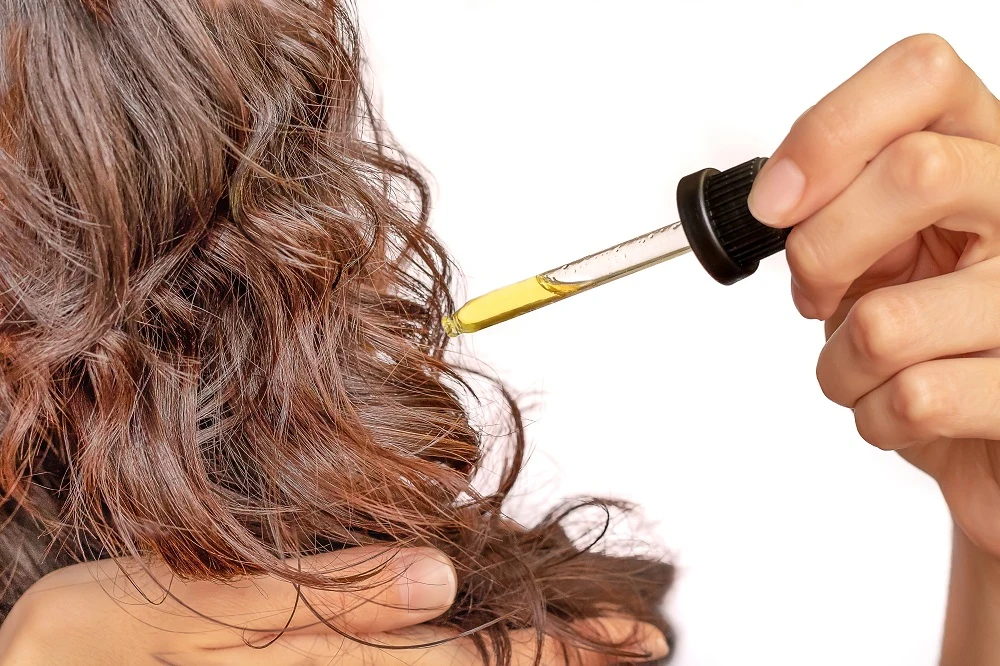
Research done by hair experts about the damage heat does to one’s hair changed how people stretch their hair. Many began braiding hair without straightening and using heatless stretching methods like curlers and twists. Others completely abandoned applying heat to the hair.
Applying oil gives the hair another layer of defense against heat damage. Many hair product companies began making heat-resistant products using natural oils. Some oils that prevent heat damage are coconut oil, castor, grapeseed, and argan oils.
Oils Contain Sun Protection Properties
Most plant-based oils have naturally occurring properties known to prevent sun damage.
Hair Oils for Every Hair Type
Hair types affect how oils interact with hair. However, hair oils have tons of benefits for your hair. Before we look at the different oils for different hair types, we first need to look at the different hair types and their unique properties.
Hair Types
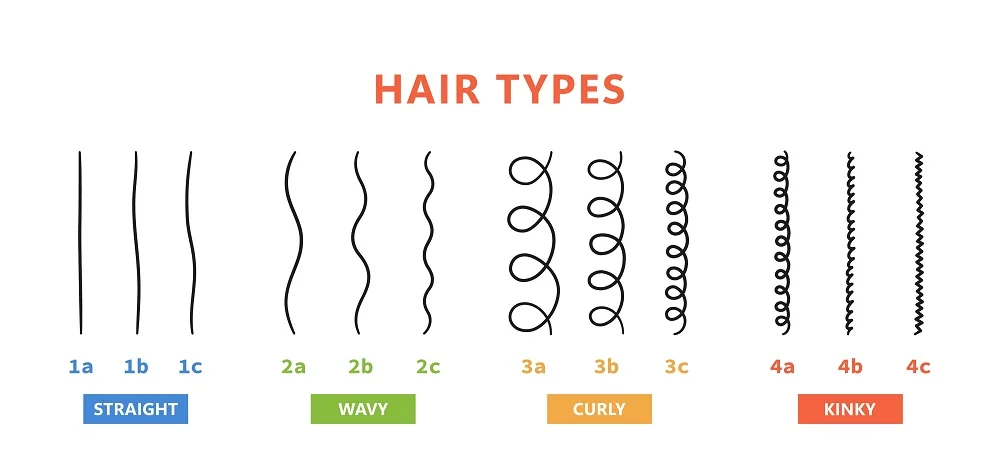
Type 1 Hair
Type 1 hair is straight hair. Type 1 hair does not curl even when wet. People with type 1 hair tend to collect oils and dirt quickly because sebum is excreted easily.
For these reasons, people with type one hair need to wash their hair frequently and avoid heavy oils that cause build-up and can quickly weaken the hair.
The hair is often thin, and heavy oils will damage the hair more.
Type 2 Hair
Type 2 hair is described as wavy. This type of hair is characterized by its ‘s’ shape and loose nature. For these reasons, the hair is most likely to become frizzy, and the correct products are needed to prevent that.
Type 3 Hair
Type 3 hair is defined as curly hair. The hair is characterized by bouncy and luscious curls that need special attention and the right hair products to maintain curls and prevent frizz.
Type 4 Hair
Type 4 hair is defined as coiled hair that is easily damaged. The hair is thick and needs heavy products to penetrate the scalp.
The hair is coarse and quickly dries out and therefore needs rich oils to retain moisture and keep the hair hydrated to prevent hair loss.
Oils for Hair
Now that we have outlined the types of hair and their unique characteristics, we will look at the different oils that will suit the hair types.
Type 4 and type 1 hair are very different opposites; the oils needed for type 1 hair cannot serve type 4 hair unless used in plenty, but that is discouraged.
Products and oils used for type 4 hair can weaken type 1 hair and even result in the hair falling off the scalp.
Coconut Oil
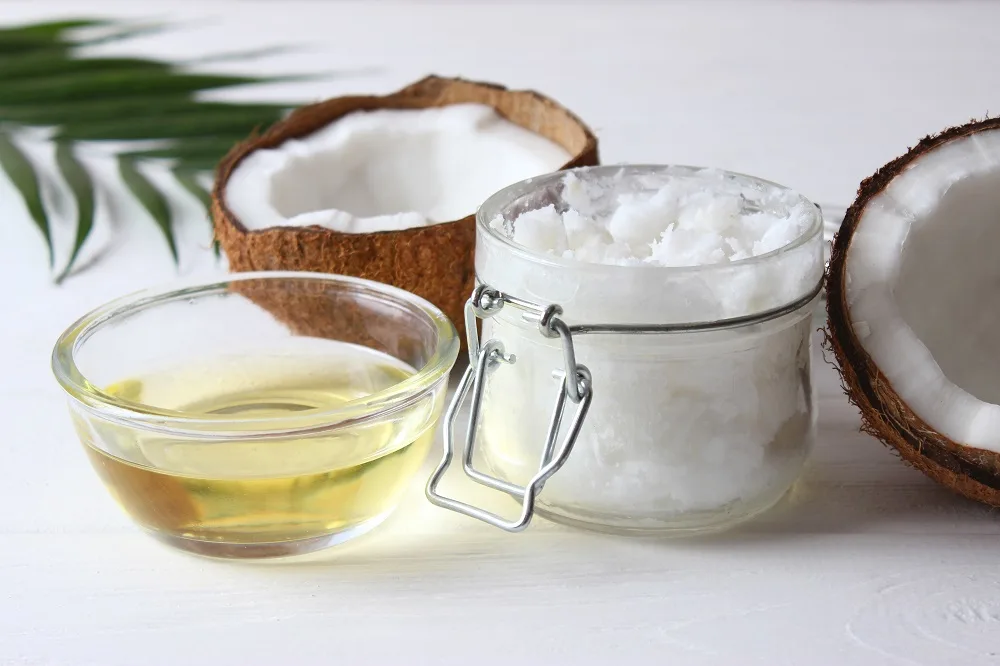
It must be noted that coconut oil is the most known hair oil and is controversial. There have been countless debates over whether coconut oil is good for hair or if you should skip it. Coconut oil is heavy, and people with type 1 hair are discouraged from using it because it may weaken the hair.
Coconut oil is best for types 3 and 4 hair. It helps in the retention of moisture and is good in the prevention of hair damage, whether heat or sun damage.
Olive Oil
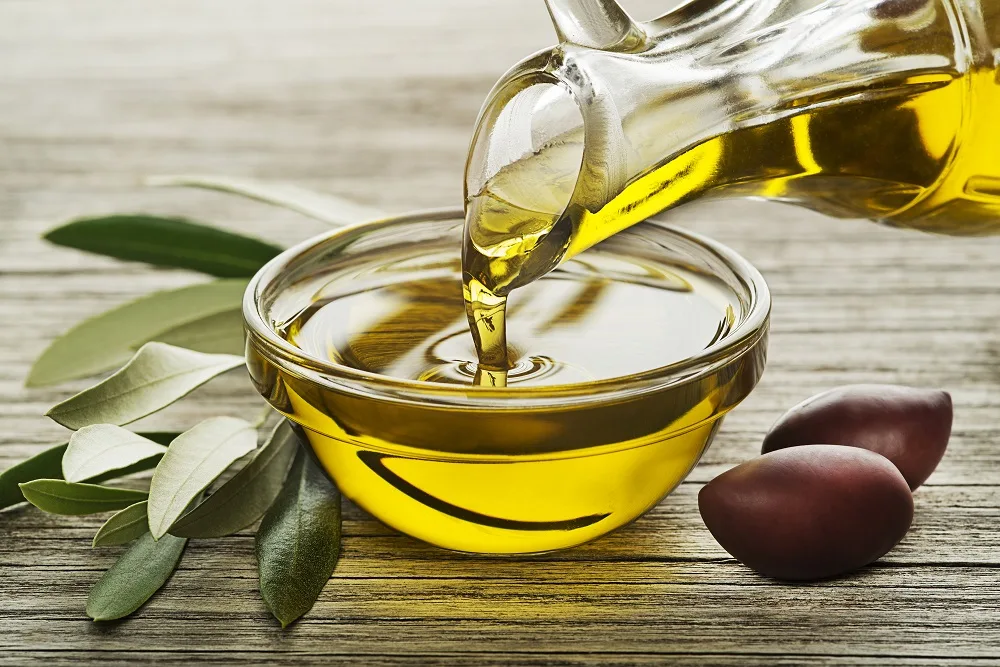
Olive oil serves more purposes than cooking delicious meals; properties in olive oil make it perfect for type 1 and 2 hair. Olive oil is silky and gives off this look; it protects and restores damaged hair. It is not heavy, which could weaken the hair.
Sunflower Oil
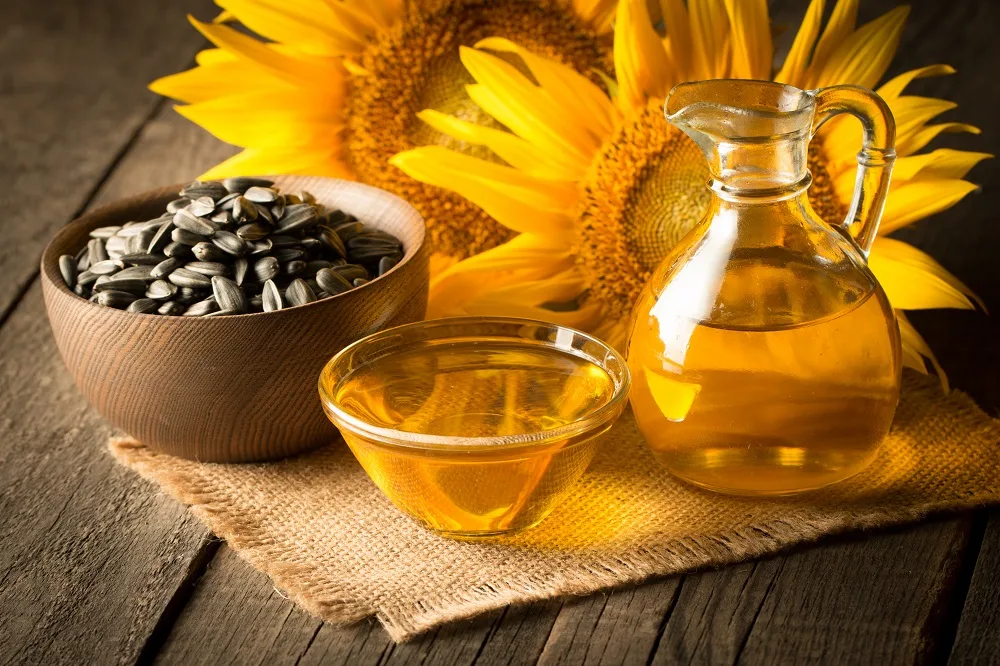
Sunflower oil possesses essential acids like oleic. Properties in the sunflower oil work wonder for damaged and brittle hair. Type 4 hair suffers most breakages, and sunflower oil reverses these effects.
Jojoba Oil
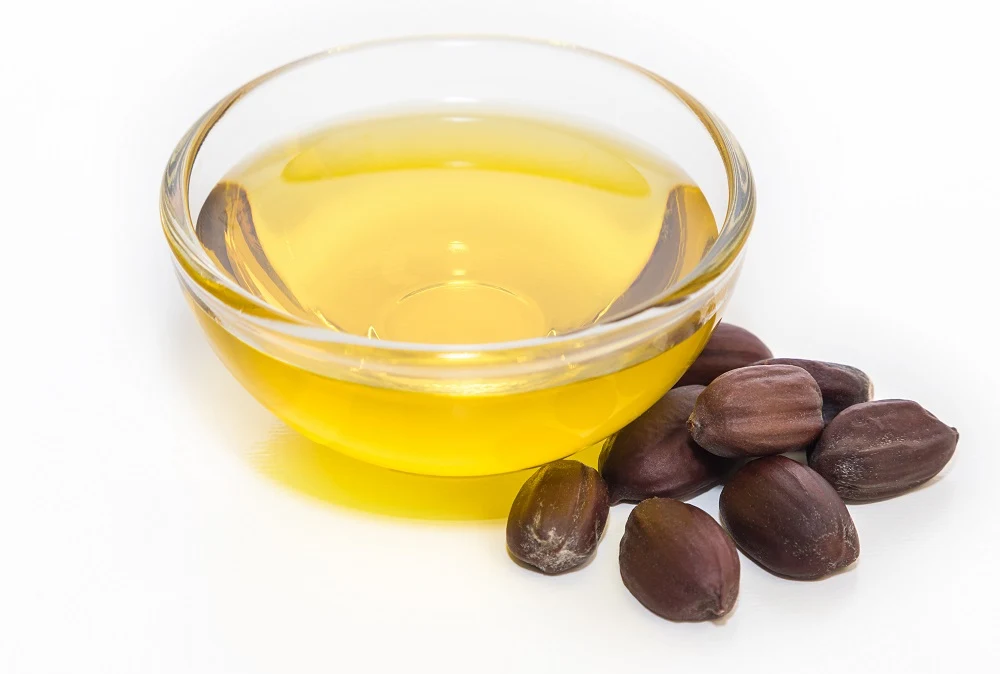
Jojoba oil is very lightweight, making it suitable for thin textured hair types, type 1 and 2 hair types. Jojoba oil also contains sebum making it the best oil for type 3 or curly hair.
Argan Oil
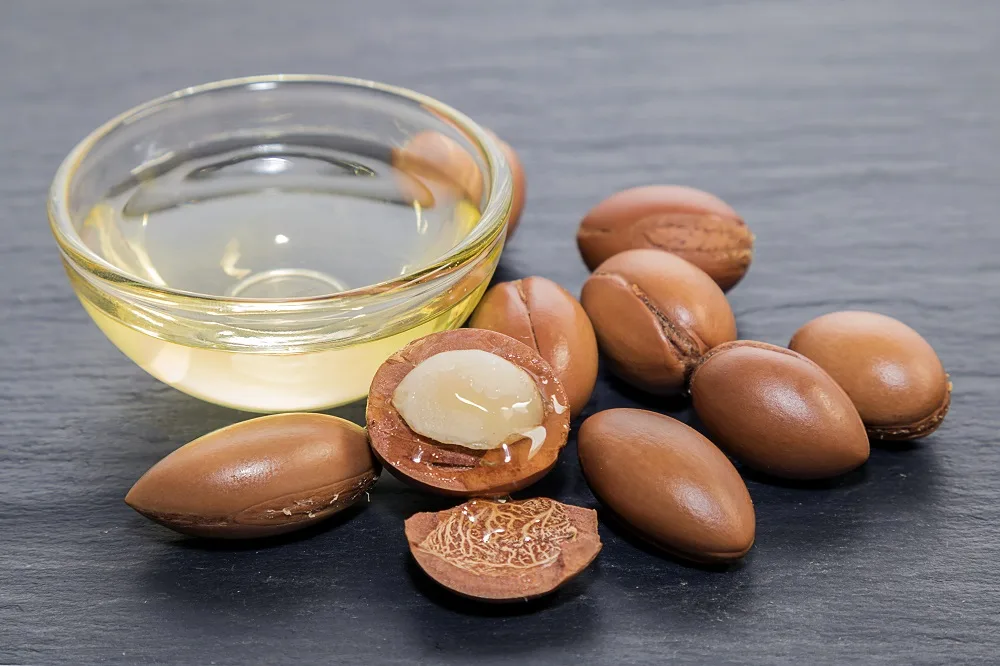
Argan oil is a popular hair oil that prevents sun and heat damage. It also controls frizz, making it suitable for all hair types, especially types 3 and 4.
Avocado Oil
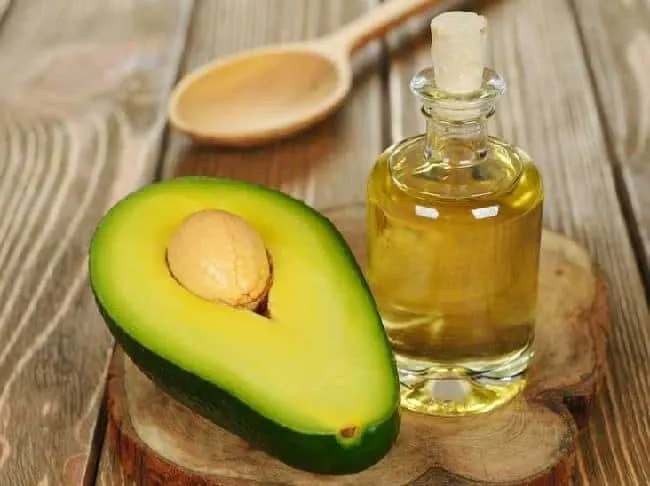
Avocado oil is an ideal hair oil for people with fine hair who suffer from oiliness and the dull aspect it creates. This is a lighter option that makes hair shiny and promotes new cell production.
To see results, you must apply the oils twice daily. Apply the oil to a clean scalp, then massage the oil into the scalp with your fingers; you can also use a scalp massager if you have one. Massaging the oil into your scalp will open up the pores and make it easier for them to absorb the oil.
Which Hair Oil is Best for Hair Growth and Thickness?
Everyone craves luscious long hair, and natural hair oils have been known to give this result if used regularly and correctly. Coconut oil has scored major points for being the best oil for growth and thickness. It is packed with essential ingredients that are needed for healthy hair.
Coconut oil is one of the oils used by many hair types. Coconut is also naturally occurring and can be used in its most natural form. However, it does tend to solidify under lower temperatures.
When using the oil, heat it for a few seconds and then massage gently to the scalp for maximum penetration, especially for people with thin hair.
What Oils are Best for Color-Treated Hair?
Colored hair, although beautiful, needs a little extra attention because it is highly susceptible to breakage. The best hair oils for colored hair are sesame, coconut, almond, and olive oils. For the oils to work best, you should heat them and massage them into your scalp.
Hair oils are essential for a healthy hair growth journey. Hair oils are multi-functional and can even handle an issue you did not know you had; they are natural and a must for healthy hair. However, to get the most out of the oil, you need to understand your hair and its needs and get an oil that will address them.
FAQs
No one should avoid hair oils; there is a hair oil for every hair type. However, what is advised is to use the correct oil for your specific hair type.
Yes, olive oil is good for hair. It has properties that prevent and reverse itchiness and dandruff, and it moisturizes and soothes the scalp, among other benefits.
Essential oils are known to be strong and need to be diluted. The best way is to mix it with another oil, like coconut oil, then massage the mixture into your scalp in slow circular motions.
Coconut oil is good for your curls. Curly hair can get frizzy, and coconut oil melts the frizz away, giving you shiny-looking hair.
Yes, it is. Argan oil has properties like vitamin E and other essential nutrients that tame frizz, giving the hair a sleek look.
Tea tree oil is most beneficial for the scalp; it soothes the area and offers relief after tight hairstyles.
Yes, it is. Rosemary oil contains nutrients that promote hair growth and fight premature graying.
The black seed oil has many beneficial properties, from anti-bacterial to anti-fungal; all these products work together to create an oil perfect for retaining moisture.
The best oils for natural hair are those that hydrate and retain hair moisture. They include coconut, sunflower, argan, and primrose oils.
Low-porosity hair needs light oils like argan, jojoba, grapeseed, baobab, and apricot oils.
Yes, peppermint oil is good for hair. It has soothing properties that make it suitable for eliminating itchy scalps and dandruff.
